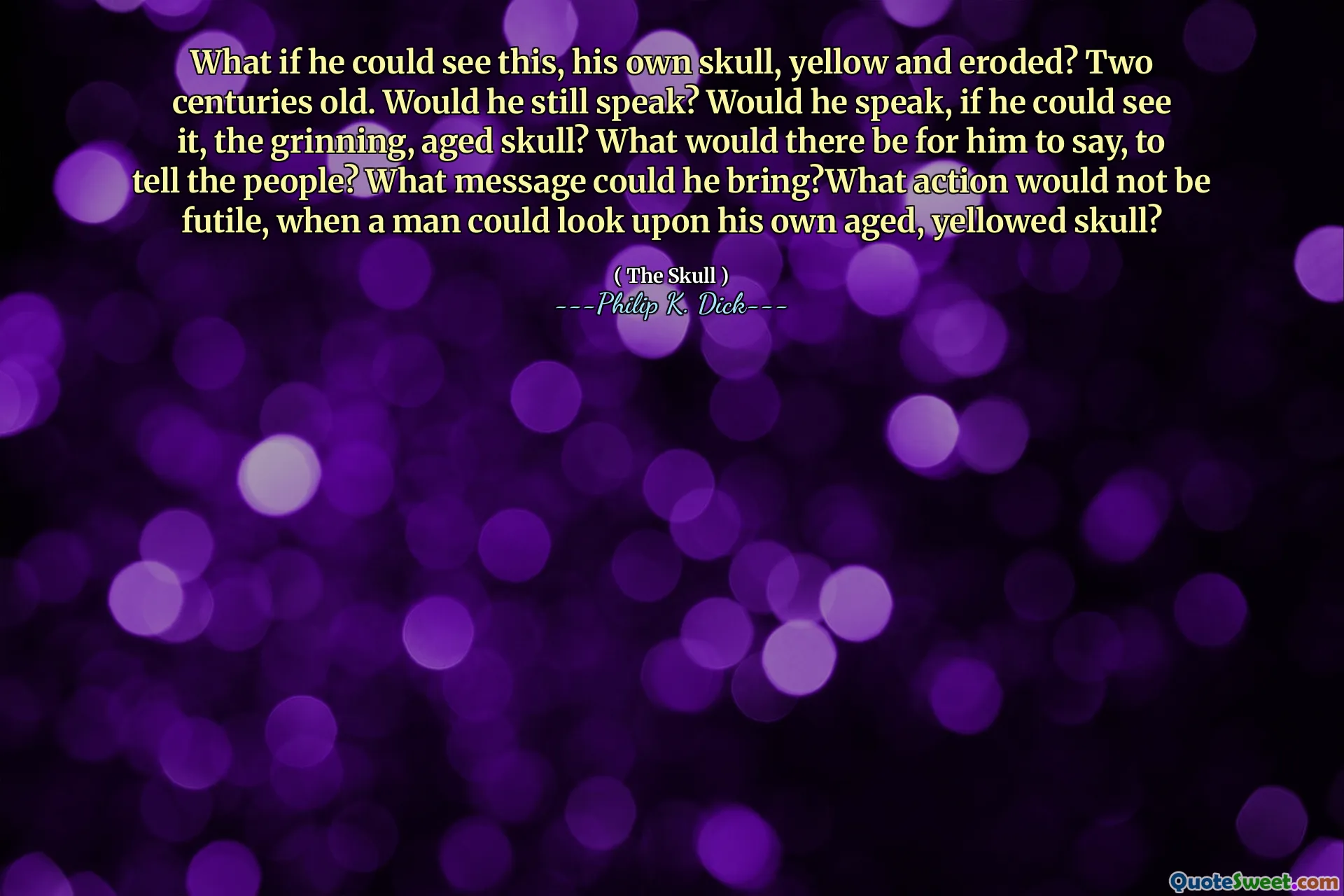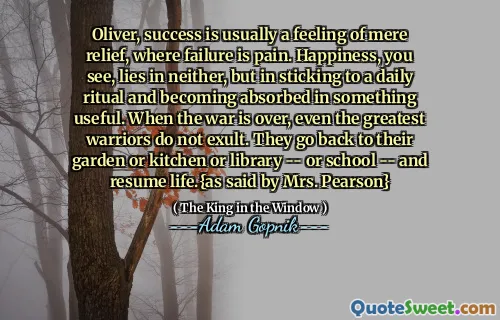
What if he could see this, his own skull, yellow and eroded? Two centuries old. Would he still speak? Would he speak, if he could see it, the grinning, aged skull? What would there be for him to say, to tell the people? What message could he bring?What action would not be futile, when a man could look upon his own aged, yellowed skull?
In Philip K. Dick's "The Skull," the protagonist grapples with the existential implications of seeing his own skull, aged and decayed after two centuries. This thought provokes deep introspection about the meaning of his life and the nature of his existence. Faced with the stark reality of his mortality, he questions the worth of his words and actions. Would knowing his fate render communication meaningless?
The image of the yellowed, cracked skull challenges him to ponder what legacy he could leave behind. If he were to confront this reminder of his mortality, it raises the profound question of what, if anything, could still hold value. This reflection opens up a dialogue about human purpose and the significance of one's voice in the face of inevitable decay.





